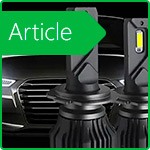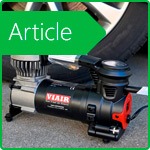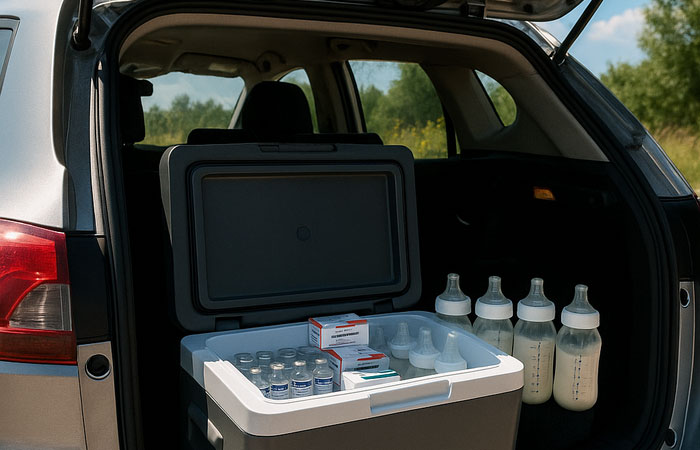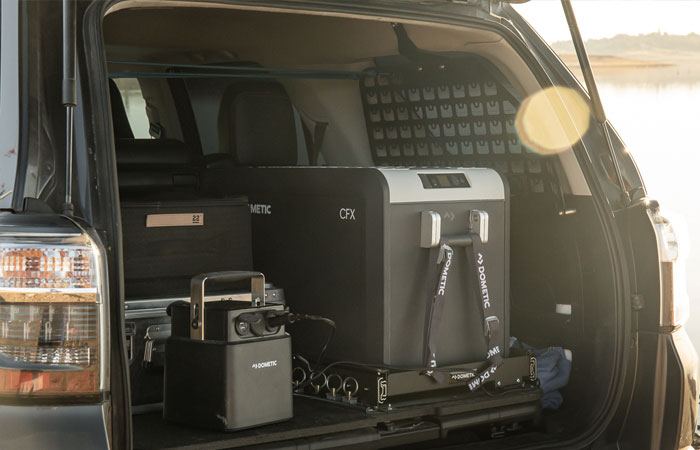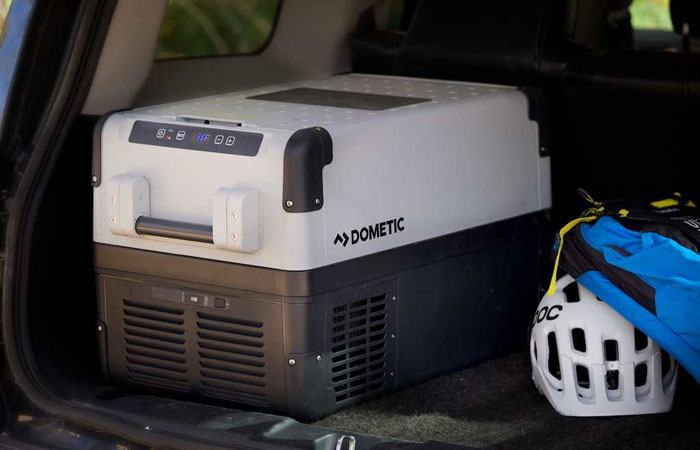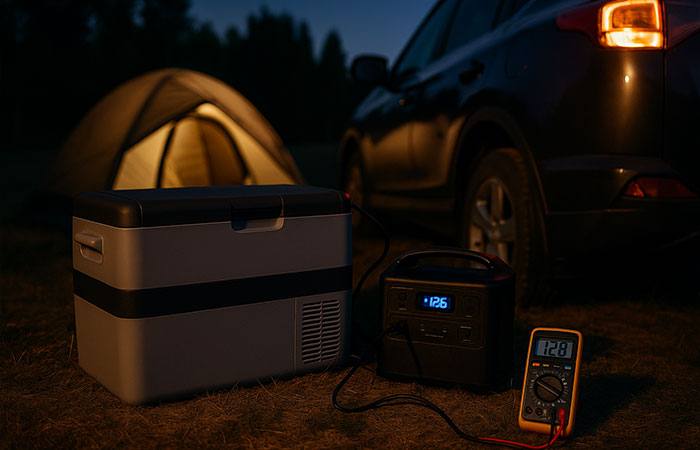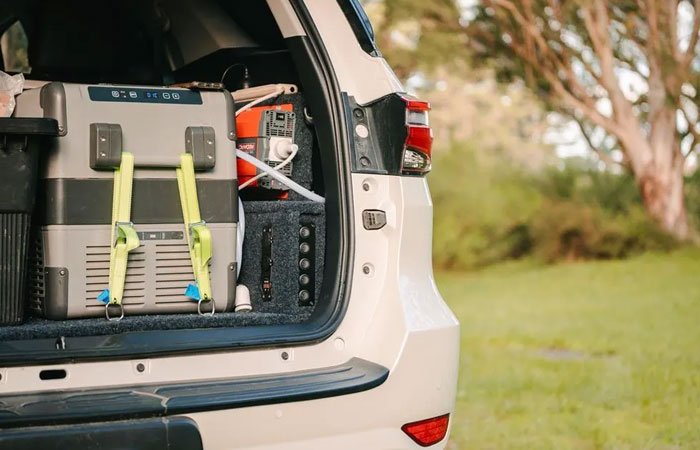How to Choose a Car Refrigerator That Won't Drain Your Battery
When a Refrigerator Saves the Day, Not Ruins It
Do you enjoy camping trips, road travel, or overnight fishing? Then you've definitely faced this dilemma: you want to bring a fridge to keep your food and drinks fresh, but battery drain always creeps up unexpectedly. Especially if your stop lasts more than a day, with no power outlets or generators nearby. The solution is choosing the right car refrigerator.
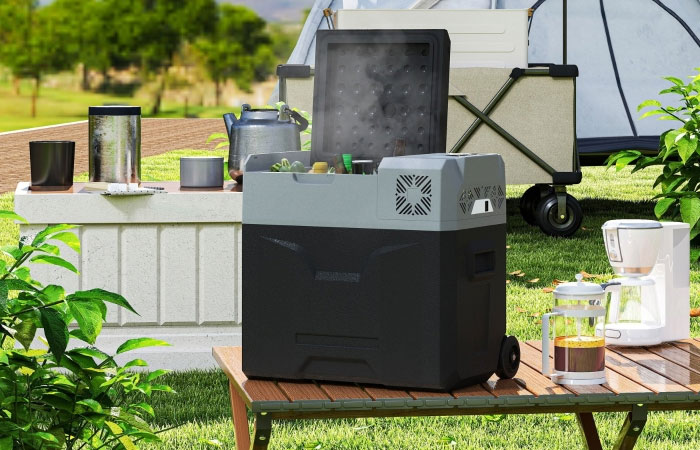
Today we'll look at how three popular types of units—compressor, thermoelectric, and absorption—behave on the road, and what to pay attention to if you care about preserving your battery charge. As examples, we'll use real models: Mystery MRQ-30 and Ranger Iceberg 19L.
Compressor Mystery MRQ-30: Battery Saving Pro
If you're looking for the golden mean between power, stability, and efficiency, check out the compressor Mystery MRQ-30. It operates at about 45W, but not constantly—it cycles on only when it needs to maintain the set temperature. This means the battery "rests" during the pauses.
In real-world conditions it performs confidently: in July heat, the MRQ-30 easily cools food to +4°C (39°F) and keeps it there for over a day, connected to a 75Ah battery. Built-in deep-discharge protection will cut the power before your car can’t start. This is especially valuable on camping trips where charging options are limited.
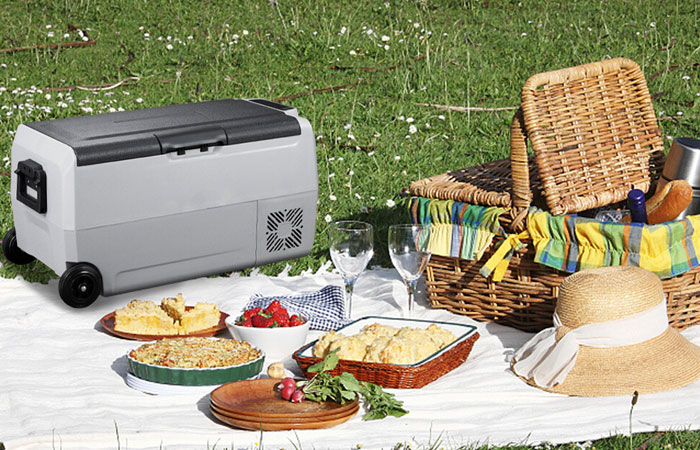
Ranger Iceberg 19L: For Short Trips and Cool Drinks
The thermoelectric model Ranger Iceberg 19L is a completely different device. It’s compact, affordable, fits easily in the trunk, and is ideal for day trips or city rides. But it has a feature: it runs non-stop, with no pauses. It draws energy continuously—about 50W—and if you don't monitor it, your battery can drain faster than you expect.
For example, on a warm summer day, the Iceberg cools about 16–18°C (29–32°F) below ambient temperature. So if it's +30°C (86°F) outside, it'll be about +12°C (54°F) inside—good for drinks, but not for meat. Eight hours of continuous use on a 60Ah battery will almost completely discharge it.
This fridge is best taken with caution: either with a separate battery, a timer, or just for short periods—always under control.
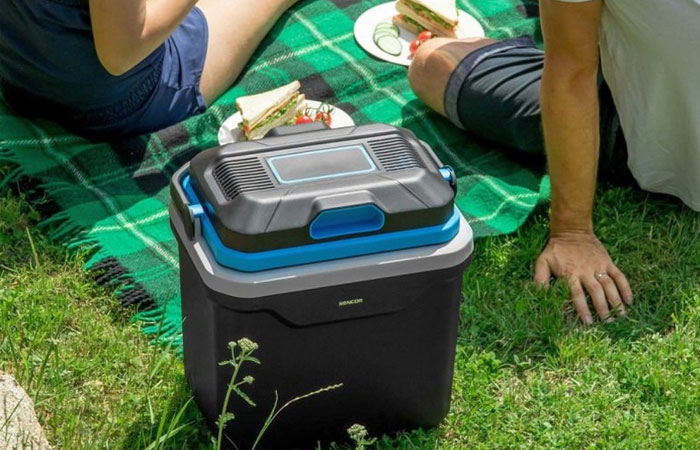
Absorption Models: Exotic with a Gas Twist
The third type is absorption refrigerators, most commonly found at campgrounds. They run on 12V, 220V, or even gas. But on 12V they are real "power guzzlers": they consume 100W or more, and do so constantly. They are not really meant to run from your car’s main battery. But with a gas cylinder, they can operate for several days without recharging.
How to Save Your Battery Charge? Simple Tips
- Always pre-cool your food and the fridge itself at home using 220V power.
- Use an insulated cover—it helps keep the temperature longer.
- Choose models with discharge protection—like the MRQ-30.
- If you opt for a thermoelectric fridge, connect it to an extra battery or monitor the usage time closely.
Without automatic shutoff, these devices can let you down at the worst moment.
Quick Model Comparison
| Model | Type | Consumption | Real Autonomy (60–75Ah) |
|---|---|---|---|
| Mystery MRQ-30 | Compressor | 45W (cyclic) | 28–36 hours, with auto shutoff |
| Ranger Iceberg 19L | Thermoelectric | 50W (constant) | 6–8 hours, no discharge protection |
Conclusion
So, if you travel often and for long periods and want to avoid battery headaches, the compressor MRQ-30 is your best choice. Reliable, efficient, protected—you’ll forget it even draws power. The Iceberg 19L is for those heading out for a picnic or a few hours by the river. Want to chill your drinks quickly? Absolutely. Keep meat fresh overnight in the woods? Not advised.
-
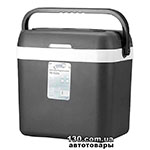 Thermoelectric refrigerator Thermo TR-132A 32 lBuy4129 ₴ 4048 ₴
Thermoelectric refrigerator Thermo TR-132A 32 lBuy4129 ₴ 4048 ₴ -
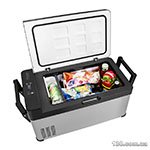 Buy
Buy











